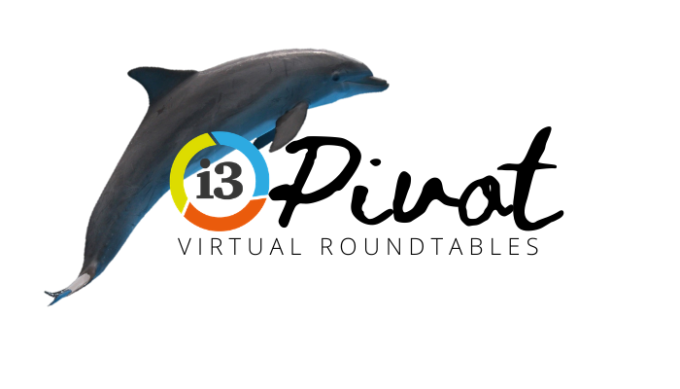Global Transportation Assets
Global transport industry assets can be broadly defined as aircraft, energy logistics, equipment, maritime, rail, and vehicles. The assets are critical components of global supply chain networks and carry essential cargoes. According to the International Maritime Organization, 90% of global trade is carried by sea.
The contracted revenue from long-term leases is the primary driver of returns and can also provide additional diversification relative to infrastructure and public markets. Many investors view Core Transportation investments through a private credit framework because leases are structured to be “take or pay” and are backed by the credit and balance sheet of the counterparty.
The introduction of post GFC regulations such as CRD IV, Dodd Frank, and Basel III, has significantly tightened ‘lease’ capital availability from traditional bank owned lessors.
However, large corporations and asset end users continue to rely heavily on leasing capital to finance critical assets in their supply chain.
Therein lies the opportunity for institutional investors to plug the funding gap.
Over the next decade, the public orderbook data shows long term demand for assets and an estimated need for USD $3.5 trillion in investment.
Supply Chain Disruption & Resilience
2020 began with strong prospects for growth in the transportation sector. However, by early March 2020, the negative impacts of COVID-19 and ensuing lockdowns were becoming evident in global trade and aviation data.
The pandemic has resulted in backlogs in global supply chains, shipping delays, labour shortages and congestion in ports. This has certainly impacted the supply/demand balance of the industry.
However, by mid-July 2020, the restoration of Chinese manufacturing activity coupled with the Amazon effect – lockdown driven online retail ordering – had led to a quick rebound. This surging demand has led to a shortage of transportation capacity available for lease, driving up asset values and lease rates.
While certain subsectors, like Aviation, were undoubtedly challenged and continue to face headwinds of uncertainty, managers that took a disciplined approach to portfolio construction that focused on diversification of assets, counterparty credit, and lease durations have been able to navigate the challenges with minimal portfolio impact.
Nevertheless, the core transportation segment has remained resilient in the disrupted global supply chain. For example, 2020 was the second most profitable year for the sector in the past 30 years, much of which can be attributed to growth in e-commerce and strong demand for consumer goods.
The Suez Canal Incident
The criticality of core transportation assets was demonstrated in March 2021 when the Ever Given, one of the world’s largest container ships, became stuck in the 120-mile Suez Canal.
Carrying 20,000 containers, the Ever Given became stuck for a period of 6 days, blocking traffic in the canal and causing a back-up of more than 350 vessels. This blockage disrupted trade flows and supply chains at a cost of approximately US$9.6 billion a day.
While a number of factors led to the incident, perhaps the most significant was a lack of infrastructure investment to keep pace with the growing scale of ships. Sections of the canal have been widened over the years, however, the Ever Given, became lodged in one of the canal’s narrowest and shallowest zones.
Incidents like this can happen in an industry that is global and has a complex operating environment. While such supply chain disruptions will affect the prices of goods, they typically do not affect lessors, as the costs are absorbed by the lessee and are likely be passed onto consumers.
Investor Portfolio Construction: Infrastructure, Income or Alternative?
Transportation assets exhibit inflation protection characteristics and low correlation to financial, as well as other types of real assets. It is sometimes referred as the ‘third leg of the real assets stool’ in a core portfolio that includes real estate and infrastructure.
Core Transport assets, which are differentiated by their long duration leases and strong counterparty backing, are often referred to as ‘moving infrastructure’ given their similarities to fixed infrastructure assets, which include duration-based income generation and transparent contracted revenue.
The premium income derived from leasing activities is certainly useful in an otherwise yield-starved environment.
However, despite its income generating and low correlation characteristics making it an optimal diversifier in a portfolio, investors used to traditional asset silos may struggle to justify a role for this unique asset.
The Sustainable Future
Growing global political alignment around greenhouse gas (GHG) reduction, along with technological advances and falling costs, have helped accelerate the transition away from traditional fossil-fuel based energy to renewable sources.
The growing use of alternative sources of energy is changing the global energy landscape, and creating significant opportunities for investment in new ESG aligned transportation asset types and technologies.
Natural gas, hydrogen, and renewables (offshore wind farms) are expected to be the fastest growing sources of energy production and require a new generation of transportation assets to support and service large scale infrastructure projects globally.
In partnership with J.P. Morgan Asset Management, this webinar will:
- Explore the fundamental pinning of global transportation assets
- Examine how resilient these assets were in 2020
- Differentiate core+ and opportunistic assets
- Discuss their role and performance in a diversified portfolio
Speaker
Anurag has over 15 years of experience in institutional sales and direct equity investment activity. Previously, he was a managing director and partner at Regent Private Capital, a family office where he invested in and managed a portfolio of direct investments in the oil & gas, pharmaceutical, services and transportation industries.
Anurag has also had roles within the investment banks of JPMorgan and Credit Suisse where he was in the Private Placements Group and raised capital for the healthcare, shipping, and energy industries.
Anurag earned a dual MBA from Boston University, Beta Gamma Sigma and a Bachelor’s Degree in Mechanical Engineering from Pune University, India. He has also been a lecturer and Director of Faculty at the Graduate School of Business at Boston University, teaching Entrepreneurial Finance and Strategy.
Enquire about this event



![[i3] Global Transportation Webinar with JP Morgan Asset Management](https://i3-invest.com/wp-content/uploads/2021/10/cameron-venti-1cqIcrWFQBI-unsplash-647x430.jpg)
![Anurag Agarwal, Head of Portfolio Management, Global Transportation Group, J.P. Morgan Asset Management [i3] Webinar: Transportation as an ‘investable’ asset class - Investment Innovation Institute [i3]](https://i3-invest.com/wp-content/uploads/2021/10/Anurag-Agarwal_1600x1940-355x430.jpg)



